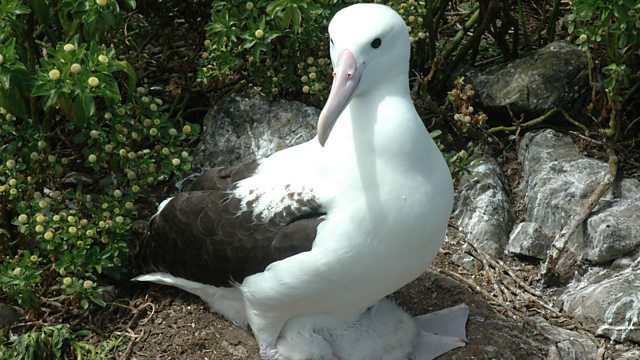
Birdwatching from Space
Birdwatching from Space; Altruism; Redefining the Meaning of Streaming; DNA from Dirt; Wound Healing; Welcome Mamas; ExoMars Rover
For the first time, conservationists can monitor Northern Royal albatrosses from space. Normally, twitchers would don a raincoat and venture into their breeding grounds on the remote Chatham Islands in New Zealand but using satellites, scientists can now count them from the comforts of their office.
We have shocking research where volunteers were invited to electrocute each other to help us understand more about altruism. We also hear from a researcher who inflicted wounds on willing volunteers in the hope of finding out how we can speed up recovery times. Gareth meets the singer who is using augmented reality and redefining the meaning of ‘streaming’ as she launches her new album from one of the quietest places on Earth.
Scientists have been scratching around in the mud to find DNA of early humans. We’re given access to the testing facility for the next Mars rover, which will be doing some similar digging on the Red Planet in search of life. Finally, we head to Germany to hear about a scheme that pairs local parents with refugee mums-to-be to help them navigate childbirth away from home.
The Science Hour was presented by Gareth Mitchell with comments from Jonathan Amos, ����ý Science Correspondent.
Producer: Graihagh Jackson
Picture: Northern Royal albatross and chick, Credit: © Paul Scofield
Last on
More episodes
Broadcast
- Sun 7 May 2017 01:06GMT����ý World Service except News Internet
Podcast
-
![]()
Unexpected Elements
The news you know, the science you don't

